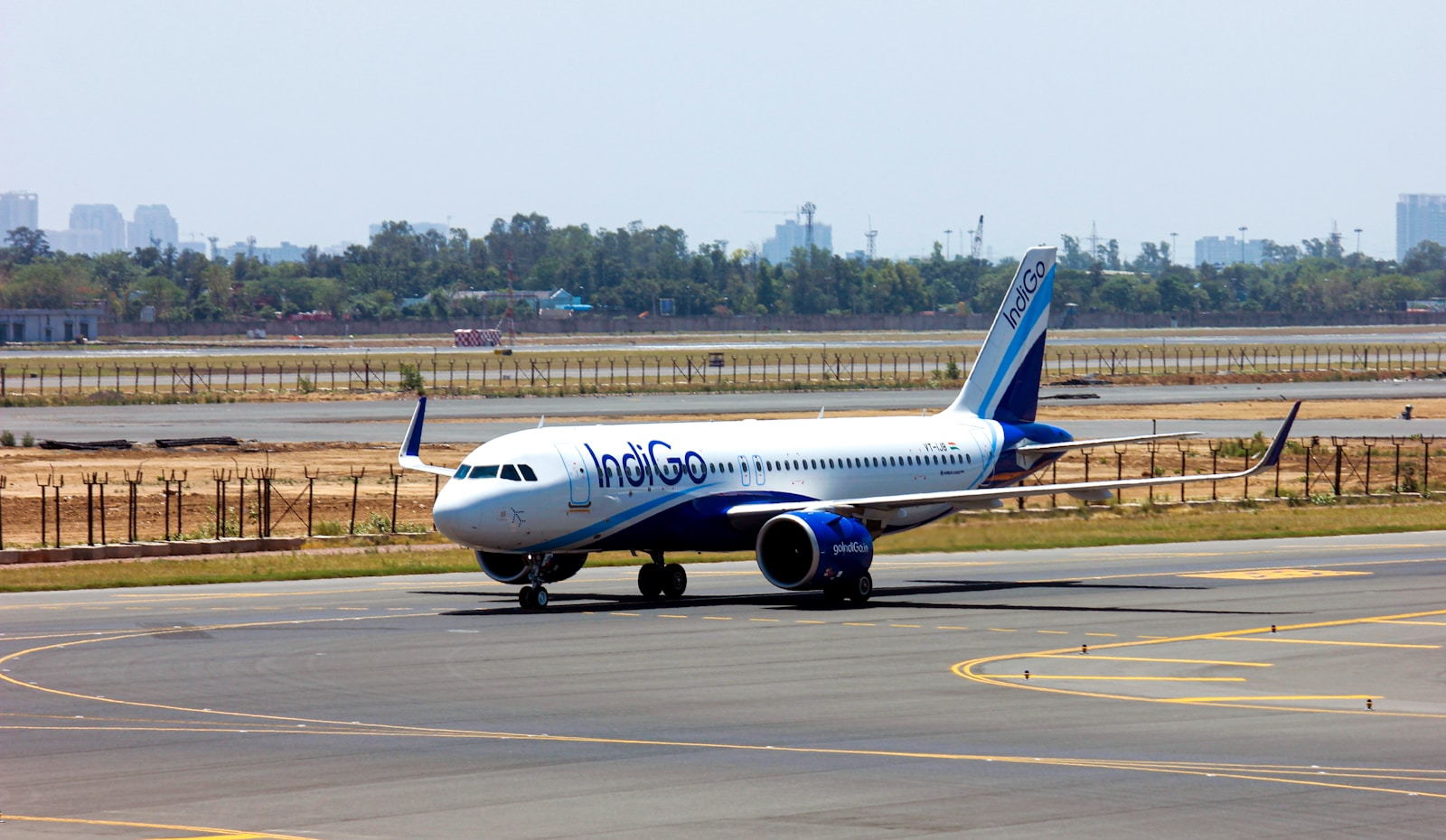Broken Assurances, Coerced Payments: Consumer Commission Fines IndiGo for Deficiency in Service

In a significant ruling that reinforces the rights of air passengers against unfair trade practices, the District Consumer Disputes Redressal Commission, Ernakulam, has fined IndiGo Airlines for deficiency in service after a passenger was wrongfully deboarded and subsequently humiliated. The case[1] highlights an airline’s accountability for assurances made to passengers in distress.
Table of Contents
The Complainant’s Case
The complaint was filed by Mr. T.P. Salim Kumar, an officer of the Indian Revenue Service (IRS). On December 14, 2019, he booked IndiGo Flight 6E-755 from Mumbai to Kochi for ₹12,447 and was allotted Seat 15F. After boarding the aircraft, Mr. Kumar alone was directed to deboard with the airline citing an “operational/technical issue”. He was compelled to deboard based on three specific assurances from the airline: (i) a full refund of the fare; (ii) confirmed accommodation on the 21:20 hrs flight that same day and (iii) rest and food facilities.
However, the airline failed to honour these promises. The 21:20 hrs accommodation was not provided; instead, he was rebooked on a much later flight, 6E-6185, scheduled for 00:25 hrs on December 15, 2019. When he requested the promised accommodation, the airline declined and instead escorted him to an airport lounge, assuring him that all expenses would be borne by them. Relying on this assurance, the complainant consumed food and a beer. At boarding time, he was subjected to public embarrassment, including being pulled off the shuttle bus, and was coerced by lounge and airline staff to pay ₹2,150 under protest. Subsequent offers from the airline of a ₹10,000 travel voucher and later a ₹10,000 monetary payment were refused as inadequate. The complainant sought a refund of his fare, the lounge charge, ₹1,626 for missed movie tickets, and ₹10,00,000 in compensation for humiliation and mental agony.
The Opposite Party’s (IndiGo’s) Defense
IndiGo contested the complaint on both procedural and substantive grounds. First, the airline raised preliminary objections regarding maintainability. It argued for misjoinder, claiming the complaint was filed against “Indigo Airlines” rather than the correct legal entity, InterGlobe Aviation Limited. Second, it objected to the territorial jurisdiction of the Ernakulam Commission, citing a forum-selection clause in its Conditions of Carriage (CoC) that conferred exclusive jurisdiction to courts in New Delhi.
On the merits of the case, IndiGo admitted to offloading the passenger due to an “unforeseen operational/seat-availability constraint”. It contended that the complainant had accepted the re-accommodation on the 00:25 hrs flight and travelled on it. Regarding the lounge incident, the airline argued the access was a “goodwill gesture” and that alcoholic beverages were “expressly excluded”. It asserted that the ₹2,150 charge was for these non-reimbursable excluded items. IndiGo concluded that it had acted strictly within its CoC, which limits compensation, and therefore, there was no deficiency in service. The airline relied on precedents like InterGlobe Aviation Ltd. v. N. Satchidanand to argue that the CoC binds passengers.
The Commission’s Findings
The Commission meticulously dismissed IndiGo’s arguments on all counts. On the issue of maintainability, the misjoinder plea was rejected as a “hyper-technical defence” and “technical gambit”. The Commission noted that IndiGo’s own evidence showed “InterGlobe Aviation Limited (IndiGo),” confirming the brand’s identity. The territorial jurisdiction objection was also struck down. The Commission affirmed that under Section 34(2) of the Consumer Protection Act, 2019, a complaint can be filed where the cause of action arises. Since the destination was Kochi, the Ernakulam Commission had jurisdiction. Citing the Supreme Court in A.B.C. Laminart (P) Ltd. v. A.P. Agencies[2], the Commission held that a contractual clause cannot “oust” the jurisdiction of statutory fora like the Consumer Commission.
Regarding the deficiency in service, the Commission found in favour of the complainant. It noted that the complainant’s testimony regarding the airline’s broken assurances, specifically the 21:20 flight and the promise to cover all lounge expenses which was “uncontroverted”. As IndiGo had not cross-examined the complainant on these points, the Commission drew an “adverse inference” against the airline. The “crux of the lis” was the lounge incident. The Commission found that IndiGo “failed miserably” to produce any document proving that the exclusion of alcoholic beverages was communicated to the passenger. In fact, its own evidence (in Ext.B7) showed no such express exclusion. The Commission applied the rule of contra proferentem, stating any ambiguity in an offer must be construed against the service provider who made it. Forcing the passenger to pay under the threat of being denied boarding was deemed a clear “deficiency” under Section 2(11) and an “unfair trade practice” under Section 2(47).
The Final Order
The Commission partly allowed the complaint. While the prayer for a refund of the base ticket fare of ₹12,447 was declined because the complainant ultimately completed the journey, IndiGo was held liable for its deficiency and unfair trade practice. The Commission ordered IndiGo to pay the complainant ₹2,150 as a refund for the coerced lounge payment and ₹626 for the missed cinema tickets, both with 9% annual interest from 15.12.2019. Additionally, the airline was ordered to pay ₹1,00,000/- (Rupees One Lakh) as compensation for mental agony, financial loss, and inconvenience, along with ₹20,000/-(Rupees Twenty Thousand) towards the costs of the proceedings. The airline was directed to comply with this order within forty-five (45) days.
Conclusion and Opinion
This judgment by the Ernakulam Commission is a significant victory for consumer rights and serves as a stern reminder to service providers, particularly airlines, that their responsibility does not end with technical compliance. The Commission rightly pierced the veil of “hyper-technical” procedural objections like misjoinder and territorial jurisdiction, which are often used to frustrate genuine consumer grievances. The ruling reinforces the principle that statutory remedies provided under the Consumer Protection Act cannot be superseded by one-sided clauses in standard-form contracts of carriage.
In our opinion, the Commission’s most critical finding relates to the application of the contra proferentem rule to the lounge incident. When an airline provides a “goodwill gesture” or a remedial facility to a passenger they have already inconvenienced, the burden of communicating any and all exclusions lies squarely with the airline. The airline’s failure to prove such communication, combined with the subsequent “coerced payment” and public humiliation of the passenger, rightfully elevates the matter from a mere service lapse to a clear-cut unfair trade practice. This decision judiciously prioritizes the passenger’s dignity and the “relationship of trust” inherent in air travel over rigid, ambiguous contractual terms, sending an unequivocal message that consumer dignity is not for sale.
For more details, write to us at: contact@indialaw.in
[1] CC.No. 409 of 2021
[2] (1989) 2 SCC 163
By entering the email address you agree to our Privacy Policy.



